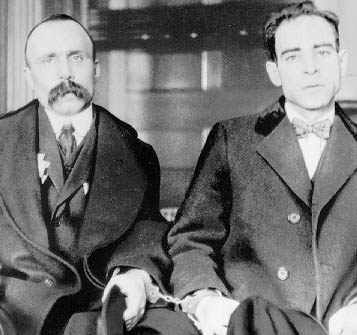Albuquerque High School is a lot like a country. We have administrators, a bureaucracy the left hand of which doesn’t know what the right hand is doing, limited freedoms (see Volume 1 Issue 3 and Volume 2 Issue 5), and pride. The focus of this issue of Foliage will be on this last feature.
National pride is something that almost every country in the world has. It is the driving force behind many decisions, it inspires citizens, and it affects the economy. However, as the French proverb (more like creed) goes: “all things in moderation.” This is true for food, wine, and like so many other things, nationalism.
Without nationalism, a country quickly dies from the inside out, its core, citizens, rotting away and soon, without support from the populace, the nation swiftly crumbles under its own weight. The prime example of this is the demise of the Soviet Union in the late 1980s and early 1990s. Without national pride, and with the huge weight of military spending, a corrupt bureaucracy, and the threat of nuclear war constantly bearing down on it, the Soviet Union collapsed incredibly quickly for a nation of its size and power.
Contrastingly, the United States went on to become the world’s predominant superpower. The reasons for this are varied and sometimes confusing, but for the purposes of this issue, we will assume that the United States stayed afloat because of the nationalism of its citizens.
After the end of the Cold War, however, the need for this intense McCarthy-esque nationalism had passed. However, the United States stubbornly held on to it. All over the world, countries were discarding their militant nationalism in favor of a newfound sense of international cooperation. Intergovernmental organizations flourished. The United Nations overcame its Cold War-era paralysis, the European Union grew from a simple trade collective to a continent-wide inter-nation governing body with authority over millions of people.
The United States, though, hung on to the sense of nationalism that had both served it through the Cold War, and was now propelling it into the single slot labeled “Superpower” in the 21st century.
But how does this relate to Albuquerque High, you ask?
Albuquerque High, as explained in the beginning of this issue, is much like a nation. As such, it also has a sense of “national” pride – school spirit. This school spirit is inspired by the school’s sports teams, its achievements, and, sometimes, by its academic prowess.
School spirit is a good thing. In moderation.
In America today, nationalism, national pride, is such a high priority that it distracts from what a democratic government’s duties to its people are: to protect, provide for, and serve them. Any questioning of the government’s motives immediately becomes an attack on America itself, an attack on the entire nation’s national pride.
In the same way, Albuquerque High School’s school spirit distracts from what this school’s founding priorities are – or should be – those being to educate, protect, and serve the students and citizens of the city of Albuquerque. AHS has lost track of these priorities and now places athletic achievement and the glory of the nation, excuse me, the school, over academic achievement and the things that will allow the students of Albuquerque High to apply for, and be accepted to competitive colleges and competitive jobs.
This rabid school spirit, blind to everything except its own goals, is a symptom of the climate in America today. America as a country is experiencing a much larger case of this overeager nationalism.
But is this good or bad?
Although some may see this powerful nationalism in America as a whole and the various sublevels of American society as a benefit and a good thing that will help America, anything that blinds both a country (or an institution) to its own goals and priorities and the citizens (or students) of a democratic nation, is a detriment to society, an impediment to peace and the antithesis of freedom and democracy.
All things in moderation.
(Note: two comics were included in this issue, they are posted as is below. Both contributors are students at Albuquerque High School.)




No comments:
Post a Comment